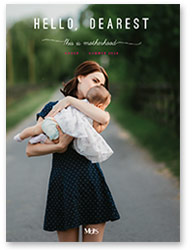Contact Us
I spend a lot of time apologizing for things I have not done wrong. For example, I will be standing in the grocery store, looking at grapefruits and someone will come up next to me to also look at grapefruits. And I will apologize. “Oh, I’m sorry.”
Or I will be laying my yoga mat down in a full class and because I am in the proximity of another person’s yoga mat, I will apologize. “Oh, I’m sorry.”
I started noticing I was doing this. Apologizing. A lot. Which got me thinking about apologies. Here’s my theory: I think we women feel the need to apologize for taking up space in the world, for being human, for having limits. We apologize for our personhood.
And it’s a way we, in the words of the gorgeous poet Mary Oliver, “walk on our knees” through life feeling like we must always be repenting for who we are.
I don’t think this was ever the purpose of an apology: a nervous self-deprecating phrase that we use to let the world know we’re sorry we’re in the way.
This is no good. Instead, apologies are around for when we get terribly triggered, run headlong into crazy town and completely blow it. An apology, according to the word’s origin, is an expression of regret. That’s good, isn’t it? Apologies are to be doled out when we realize we have done something regrettable and we need to express our misstep to the offended party.
So how do we do the actual vulnerable work of admitting when we are wrong?
First, we take personal responsibility for our actions. This is also known as “adulting.” Boo. No one likes to adult, to own up to their regrettable actions. But, alas, it must be done if we are to do the repair work that is necessary for healthy, thriving relationships.
Then we go to the person we have obliterated with our ugliness and we say, “I am sorry.” Not the cheapened version that we spout 100 times a day to strangers all over town. No, the actual, uneasy, man-I-really-blew-it version. The one that requires eye contact and heart contact.
We don’t wait for this to feel good. We don’t wait until the other person has earned it. We don’t wait for this to seem easy. Instead, we open up the tiniest space in us where we find humility. Not shame. Humility. In humility we do our best to let go of our precious perspective that we’re nursing. We put one foot in front of the other and walk ourselves over to the person we’ve hurt.
“I am sorry.”
And then we feel all the raw feelings that come with vulnerability. We may feel powerless, exposed, self-loathing. That’s normal, but it’s also no place to stay.
Next, we must forgive ourselves. The other person will usually forgive us much sooner and much more completely than we can forgive ourselves. Especially when we have turned our anger on our children. I find this to be one of the deepest holes to climb out of.
We offer the other person the opportunity to begin again and we offer ourselves the same pardon.
After we’ve done all this hard work, there’s still more to do. We need to roll up our sleeves and rebuild.
In 12-Step recovery, Step 9 is all about “making amends.” I love this concept because it is not just about speaking words to a person we have hurt. Step 9 is also about mending the wrong when and if we can. Sometimes an apology is words, but sometimes it needs to be actions too. We need to actually directly repair the damage we have caused. Often this looks like a change in behavior, a change in our patterns, and it includes the hard work of doing things differently.
There’s an art to an apology. We don’t want to cheapen that dance by apologizing for things we have not done wrong. Because when the time comes, and we have totally and completely screwed up, we need the power of those three words. I. Am. Sorry.
And then we begin again.
Leeana Tankersley is the author of “Brazen” and “Breathing Room.” She lives in San Diego, California with her husband, Steve, and their three kids: Luke (7), Lane (7), and Elle (4). Learn more about Leeana’s work at leeanatankersley.com.

This article originally appeared in the Summer 2016 issue of Hello, Dearest. If you didn’t get a copy and would like your own, you can subscribe to get Hello, Dearest in your mailbox every season. If you subscribe, forward your receipt to magazines@mops.org and we’ll shoot a copy of the current issue in the mail to you for free … just because we like you.
